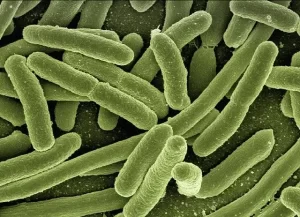Nature: Challenge evolution theory | DNA mutation is not random
- Did Cloud Seeding Unleash a Deluge in Dubai?
- News draftScientists Identify Gut Bacteria and Metabolites that Lower Diabetes RiskNews draft
- OpenAI’s Model Matches Doctors in Assessing Eye Conditions
- UK: A Smoke-Free Generation by Banning Sales to Those Born After 2009
- Deadly Mutation: A New Monkeypox Variant Emerges in the DRC
- EPA Announces First-Ever Regulation for “Forever Chemicals” in Drinking Water
Nature: Challenge evolution theory | DNA mutation is not random
- Red Yeast Rice Scare Grips Japan: Over 114 Hospitalized and 5 Deaths
- Long COVID Brain Fog: Blood-Brain Barrier Damage and Persistent Inflammation
- FDA has mandated a top-level black box warning for all marketed CAR-T therapies
- Can people with high blood pressure eat peanuts?
- What is the difference between dopamine and dobutamine?
- How long can the patient live after heart stent surgery?
Nature: Challenge evolution theory | DNA mutation is not random.
We know that DNA is damaged all the time, and when DNA is damaged and cannot be repaired correctly, mutations occur, resulting in new mutations.
Since the first half of the 20th century, evolution has been dominated by the idea that DNA mutations occur randomly in the genome.
“We’ve always thought that mutations are basically random in the genome,” said Gray Monroe, lead author of the paper and assistant professor in the UC Davis Department of Plant Sciences. “It turns out that mutation is very non-random, and it’s beneficial to plants in a way. It’s a whole new way of thinking about mutation.”
On January 12, 2022, researchers from the Max Planck Institute for Developmental Biology in Germany, the University of California, Davis and other institutions published a paper in Nature, entitled: Mutation bias reflects natural selection in Arabidopsis thaliana.
The study found that mutations in DNA are not random, and the frequency of DNA mutations is significantly reduced in some important regions of the genome.
This changes our understanding of evolution, and the findings may help scientists develop better crops and even help humans fight cancer.
To explore whether the DNA mutations are random or have deeper mechanisms, the research team spent three years sequencing the DNA of hundreds of Arabidopsis species.
Arabidopsis is a model organism for studying genetics, just like the guinea pig in plant research.
The research team chose Arabidopsis for the study because the genome of Arabidopsis is small, only about 120 million base pairs, compared to about 3 billion base pairs in humans.
The research team grew the Arabidopsis specimens in a protected laboratory environment, allowing defective Arabidopsis thaliana that might not survive in nature to survive in a controlled environment.
Sequencing hundreds of Arabidopsis species uncovered more than a million mutations, revealing a nonrandom mutational pattern among them.
It was previously theorized that initial mutations are completely random, and that natural selection determines which mutations can be observed in an organism.
But the new study found that these mutations were not random, and that the frequency of genetic mutations was lower in those important regions .
For example, the frequency of mutations within genes was reduced by about half, and in those essential genes, the frequency of mutations was reduced by two-thirds.
These regions are the really important regions of the genome, the most biologically important regions are protected from mutation, these regions are very sensitive to the deleterious effects of new mutations, therefore, DNA damage repair is particularly effective in these regions.

Using independent genomic mutation databases, including the largest Arabidopsis mutation accumulation experiment conducted to date, the research team demonstrated that epigenomic and physical features explain 90% of this genome-wide mutational bias of varying frequencies of mutations in different regions .
The research team believes that epigenome-related mutational bias reduces the occurrence of deleterious mutations.
These findings add a surprising twist to Darwin’s theory of evolution by natural selection , showing that DNA mutations in evolution are not random or directionless.
Detlef Weigel , corresponding author of the paper, said the finding that plants have evolved a way to protect the most important regions of their genome from mutation is exciting because we can also use these findings to study how to protect human genes from subject to mutation .
Additionally, understanding why certain regions of the genome are more mutated than others could help breeding researchers who rely on genetic variation create better crops.
Scientists can also use this information to better predict or develop new treatments for diseases such as cancer caused by DNA mutations.
In conclusion, the team says these findings provide a more complete picture of the forces driving natural patterns of variation, challenge long-standing theories about mutational randomness , and provide future directions for theoretical and practical research on mutation in biology and evolution.
Reference :
https://www.nature.com/articles/s41586-021-04269-6
Nature: Challenge evolution theory | DNA mutation is not random
(source:internet, reference only)
Disclaimer of medicaltrend.org
Important Note: The information provided is for informational purposes only and should not be considered as medical advice.




